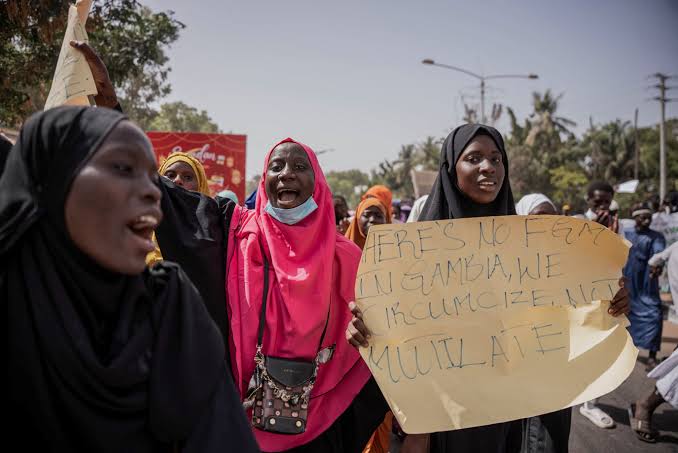Opinion
More needed to Mobilize in Critical Times of Threats and Opportunities for Kenyan Women

By Alvin Mwangi
As we marked the International Day of Action on Women’s Health, the theme of “Mobilizing in Critical Times of Threats and Opportunities” resonates with unprecedented urgency in Kenya and the region. Characterized by rapid social, economic, and environmental changes, women’s health stands at a crucial crossroads. The current landscape presents formidable challenges, but equally significant opportunities to make transformative progress.
In recent years, women’s health has witnessed both remarkable advancements and persistent setbacks. On one hand, global efforts have led to increased access to reproductive health services, significant reductions in maternal mortality, and heightened awareness of gender-specific health issues. On the other hand, the COVID-19 pandemic has exacerbated existing health disparities, with women disproportionately bearing the brunt of healthcare disruptions, economic instability, and gender-based violence.
Some of the threats witnessed by Kenyan women, from, firstly, healthcare Disparities, access to healthcare remains uneven, with marginalized women facing significant barriers. Rural, low-income, and minority women often have limited access to quality care, leading to poorer health outcomes. Two, Economic Inequality, Economic instability, worsened by the pandemic, has deepened gender disparities. Women, who are overrepresented in low-paying and precarious jobs, face greater challenges in accessing healthcare and maintaining overall well-being.Three, Reproductive Rights: In Kenya, reproductive rights are under threat. Legislative measures and political agendas aimed at restricting access to contraception and safe abortion services pose significant risks to women’s autonomy and health. Lastly, Violence Against Women: Gender-based violence is a pervasive threat that impacts physical and mental health. The isolation and economic stress of the pandemic have intensified this issue, with reports of domestic violence surging worldwide.
Opportunities for progress remain immense, if we are to improve women’s health; Mobilizing for policy advocacy and change is crucial. Advocating for inclusive healthcare policies, increased funding for women’s health services, and protective legislation for reproductive rights can drive significant improvements. Programs like Linda Mama that supported the journey of women into motherhood must be maintained. Grassroots movements play a pivotal role in advancing women’s health. Empowering communities through education, local advocacy, and support networks can lead to sustainable health improvements and greater resilience against threats. Leveraging technology innovations can bridge gaps in healthcare access. Telemedicine, mobile health applications, and digital education platforms offer innovative solutions to reach underserved populations and provide critical health information and services. International cooperation and solidarity are essential. Global partnerships and alliances can amplify efforts, share best practices, and mobilize resources to address women’s health challenges effectively.
To harness these opportunities and mitigate threats, a multifaceted and inclusive approach is essential. Some of the strategies for mobilizationat present and even the future: Strengthening Advocacy Networksthrough building robust networks of advocates, healthcare professionals, and policymakers is vital. These networks can drive collective action, influence public policy, and ensure that women’s health remains a priority on national and international agendas.
Investing in Education and Research, education is a powerful tool for empowerment. Investing in health education and research focused on women’s specific health needs can lead to informed decision-making and evidence-based interventions. Promoting Gender Equity in Healthcare, ensuring gender equity in healthcare systems is crucial. This includes training healthcare providers on gender-sensitive care, addressing gender biases, and promoting women’s leadership in health sectors. Amplifying Voices, Creating platforms for women to share their experiences and perspectives is essential. Amplifying these voices can highlight critical issues, inspire action, and foster a supportive environment for change.
As we observed the International Day of Action on Women’s Health, the call to mobilize in these critical times cannot be overstated. While the threats are significant, the opportunities to advance women’s health are equally profound. By harnessing the power of advocacy, community engagement, technological innovation, and global solidarity, we can create a future where every woman has the right and access to comprehensive, equitable, and empowering healthcare. Let this day be a reminder and a catalyst for action, commitment, and progress toward a healthier and more just world for women everywhere.
The writer is a Youth Activist, Reproductive health advocate based in Nairobi, Kenya.
Kenya Insights allows guest blogging, if you want to be published on Kenya’s most authoritative and accurate blog, have an expose, news TIPS, story angles, human interest stories, drop us an email on [email protected] or via Telegram
-

 Grapevine2 weeks ago
Grapevine2 weeks agoAlleged Male Lover Claims His Life Is in Danger, Leaks Screenshots and Private Videos Linking SportPesa CEO Ronald Karauri
-

 Lifestyle2 weeks ago
Lifestyle2 weeks agoThe General’s Fall: From Barracks To Bankruptcy As Illness Ravages Karangi’s Memory And Empire
-

 Grapevine7 days ago
Grapevine7 days agoRussian Man’s Secret Sex Recordings Ignite Fury as Questions Mount Over Consent and Easy Pick-Ups in Nairobi
-

 Investigations4 days ago
Investigations4 days agoMulti-Million Dollar Fraud: Three Kenyans Face US Extradition in Massive Cybercrime Conspiracy
-

 Economy3 days ago
Economy3 days agoIran Demands Arrest, Prosecution Of Kenya’s Cup of Joe Director Director Over Sh2.6 Billion Tea Fraud
-

 Investigations2 weeks ago
Investigations2 weeks agoEpstein’s Girlfriend Ghislaine Maxwell Frequently Visited Kenya As Files Reveal Local Secret Links With The Underage Sex Trafficking Ring
-

 News2 weeks ago
News2 weeks agoState Agency Exposes Five Top Names Linked To Poor Building Approvals In Nairobi, Recommends Dismissal After City Hall Probe
-

 News2 days ago
News2 days agoTHE FIRM IN THE DOCK: How Kaplan and Stratton Became the Most Scrutinised Law Firm in Kenya
















